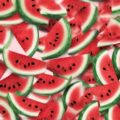Understanding the Importance of Folate
Folate, also known as vitamin B9, is a vital nutrient that plays an essential role in numerous bodily functions. It is crucial for DNA synthesis, repair, and methylation. Folate is also significant in the production of red blood cells and aids in the conversion of carbohydrates into energy. A deficiency in folate can lead to various health issues, including anemia, elevated homocysteine levels, and, during pregnancy, increased risk of neural tube defects in the developing fetus.
Top Folate-Rich Foods to Include in Your Diet
1. Leafy Green Vegetables
Leafy greens such as spinach, kale, and romaine lettuce are among the best sources of folate. A single cup of cooked spinach provides about 263 micrograms of folate, which is more than half of the daily recommended intake.
2. Legumes
Beans, lentils, and peas are excellent sources of folate. For example, one cup of cooked lentils contains approximately 358 micrograms of folate. Incorporating legumes into your diet can significantly boost your folate intake.
3. Citrus Fruits
Citrus fruits such as oranges, grapefruits, lemons, and limes are not only rich in vitamin C but also provide a good amount of folate. One medium orange offers around 40 micrograms of folate.
4. Avocado
Avocado is a versatile fruit that is high in healthy fats and folate. Half an avocado contains about 82 micrograms of folate, making it a delicious and nutritious addition to your diet.
5. Nuts and Seeds
Nuts and seeds, including sunflower seeds, flaxseeds, and almonds, are also good sources of folate. A quarter cup of sunflower seeds provides about 82 micrograms of folate.
Benefits of Consuming Folate-Rich Foods
Including folate-rich foods in your diet offers numerous health benefits:
- Prevents Birth Defects: Adequate folate intake during pregnancy is crucial for preventing neural tube defects and other congenital anomalies.
- Supports Heart Health: Folate helps in reducing homocysteine levels, which is associated with a lower risk of cardiovascular diseases.
- Boosts Mental Health: Folate is essential for brain function and has been linked to a reduced risk of depression and cognitive decline.
- Aids in DNA Repair and Synthesis: Folate plays a critical role in DNA repair and synthesis, which is essential for cell growth and regeneration.
How to Incorporate Folate-Rich Foods into Your Diet
Incorporating folate-rich foods into your diet can be simple and delicious. Here are some tips:
- Add Leafy Greens to Smoothies: Blend spinach or kale into your morning smoothie for a folate boost.
- Include Legumes in Soups and Salads: Add lentils or chickpeas to your soups and salads for an extra dose of folate.
- Snack on Citrus Fruits: Enjoy oranges or grapefruits as a refreshing snack.
- Use Avocado as a Spread: Mash avocado and use it as a spread on toast or as a topping for salads and sandwiches.
- Incorporate Nuts and Seeds: Sprinkle sunflower seeds or flaxseeds on your yogurt, oatmeal, or salads.
Frequently Asked Questions (FAQ)
1. What is the recommended daily intake of folate?
The recommended daily intake of folate for adults is 400 micrograms. Pregnant women are advised to consume 600 micrograms, while breastfeeding women should aim for 500 micrograms.
2. Can I get enough folate from my diet alone?
Yes, it is possible to meet your daily folate needs through a balanced diet that includes folate-rich foods such as leafy greens, legumes, citrus fruits, and nuts.
3. Are there any risks associated with consuming too much folate?
Excessive intake of folate from supplements can mask vitamin B12 deficiency and may lead to other health issues. It is important to follow recommended dosages and consult with a healthcare provider before taking supplements.
4. Is folate the same as folic acid?
Folate is the natural form of vitamin B9 found in foods, while folic acid is the synthetic form used in supplements and fortified foods. Both are important for health but are metabolized differently by the body.
5. Can folate help with mental health?
Yes, folate is important for brain function and has been linked to a reduced risk of depression and cognitive decline. Adequate folate intake can support overall mental health and well-being.









